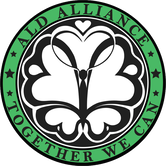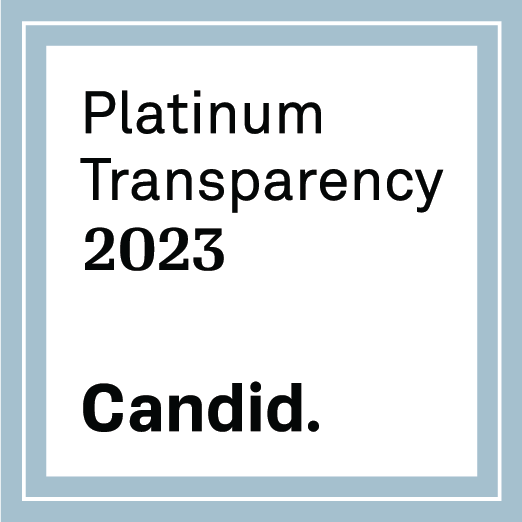Navigating and managing health-related expenses may feel confusing and overwhelming. Below, we will discuss financial support options for which you and your family may be entitled. Keep in mind that these supports are typically administered by states and/or counties. Check with your local state or county to see services available to your family. In terms of timing, it may be helpful to apply for support programs before heading into treatment if you are able. Social workers or case coordinators at your treatment center may be able to provide support with navigating this process.
Medicaid & Children’s Health Insurance Program (CHIP)
Helpful programs you may consider applying for are Medicaid or Children’s Health Insurance Program (CHIP). Medicaid provides healthcare coverage to low-income families and individuals as well as people with disabilities. If you do not meet the Medicaid eligibility criteria, try applying to CHIP. CHIP offers low-cost child healthcare coverage to families who are not considered low-income. Medicaid and CHIP programs are operated by states; therefore, eligibility criteria and benefits may vary. You can apply for Medicaid and CHIP through the Health Insurance Marketplace (a tool that helps you find affordable insurance options you are eligible for) or directly through your state’s Medicaid department.
Supplemental Security Income
Supplemental Security Income (SSI) provides monthly financial assistance to adults and children with disabilities to help pay for food, housing, and clothing. Eligibility is based on age, disability status, income, and resources. Funding amounts may vary based on income, other financial supports you may already be receiving, and whether your state contributes to the federal SSI payment (e.g., if your state does contribute to the federal SSI payment, you will receive more).
Private Insurance Premium Support
If your child has Medicaid and you are struggling to pay your private insurance premium, look into whether your state offers Health Insurance Premium Payment (HIPP) programs. HIPP provides premium payment support to families who (1) have a family member that has Medicaid and (2) pay for private insurance through an employer.
Insurance Appeals
Private insurance: If you are denied coverage, you can appeal your insurance provider's decision. You can file appeals internally or externally. An internal appeal means your healthcare provider will review your appeal and make the final decision. An external appeal means an outside/external company will review your appeal and make the final decision.
Medicaid or CHIP: If your child is supported by Medicaid or CHIP, the appeal process might look different. Contact or visit your state’s Medicaid department or website to learn more about the appeal process.
Navigating Financial Supports and Resources
Applying for various grants, insurance plans, and waivers can be a time consuming and stressful process. If you would like support during this time, talk to your child’s social worker, case manager, care coordinator and/or an insurance navigator.
Depending on their depth of responsibilities, social workers, case managers, and care coordinators can provide you with insurance information regarding eligibility and benefits, and assist with applications and appeals. They may also be knowledgeable of other state and county resources that are available to you and your family. Another great support resource is insurance navigators. Navigators are unbiased professionals who explain and help people explore health coverage options and assist with the application and enrollment process. Click here to find assistance near you.
Disability Resources
To ensure you can get as much coverage and support as possible, you should also look into disability resources for your child. Your family may be eligible for waiver programs that offer support related to insurance, emotional and behavioral health, care-taking, finances, transportation, and education.
If your state offers it, one disability waiver program to consider applying for is a Developmental Disabilities (DD) Waiver. DD Waivers provide financial support for individuals with developmental disabilities who are seeking to receive in-home or community services. Visit the links below to learn more about disability services and resources your child may be eligible for:
Grants and Additional Resources
You and your family may be eligible to receive additional financial assistance, housing, equipment, or other resources that are provided by various non-profit organizations. Some options are provided below:
Medicaid & Children’s Health Insurance Program (CHIP)
Helpful programs you may consider applying for are Medicaid or Children’s Health Insurance Program (CHIP). Medicaid provides healthcare coverage to low-income families and individuals as well as people with disabilities. If you do not meet the Medicaid eligibility criteria, try applying to CHIP. CHIP offers low-cost child healthcare coverage to families who are not considered low-income. Medicaid and CHIP programs are operated by states; therefore, eligibility criteria and benefits may vary. You can apply for Medicaid and CHIP through the Health Insurance Marketplace (a tool that helps you find affordable insurance options you are eligible for) or directly through your state’s Medicaid department.
Supplemental Security Income
Supplemental Security Income (SSI) provides monthly financial assistance to adults and children with disabilities to help pay for food, housing, and clothing. Eligibility is based on age, disability status, income, and resources. Funding amounts may vary based on income, other financial supports you may already be receiving, and whether your state contributes to the federal SSI payment (e.g., if your state does contribute to the federal SSI payment, you will receive more).
Private Insurance Premium Support
If your child has Medicaid and you are struggling to pay your private insurance premium, look into whether your state offers Health Insurance Premium Payment (HIPP) programs. HIPP provides premium payment support to families who (1) have a family member that has Medicaid and (2) pay for private insurance through an employer.
Insurance Appeals
Private insurance: If you are denied coverage, you can appeal your insurance provider's decision. You can file appeals internally or externally. An internal appeal means your healthcare provider will review your appeal and make the final decision. An external appeal means an outside/external company will review your appeal and make the final decision.
Medicaid or CHIP: If your child is supported by Medicaid or CHIP, the appeal process might look different. Contact or visit your state’s Medicaid department or website to learn more about the appeal process.
Navigating Financial Supports and Resources
Applying for various grants, insurance plans, and waivers can be a time consuming and stressful process. If you would like support during this time, talk to your child’s social worker, case manager, care coordinator and/or an insurance navigator.
Depending on their depth of responsibilities, social workers, case managers, and care coordinators can provide you with insurance information regarding eligibility and benefits, and assist with applications and appeals. They may also be knowledgeable of other state and county resources that are available to you and your family. Another great support resource is insurance navigators. Navigators are unbiased professionals who explain and help people explore health coverage options and assist with the application and enrollment process. Click here to find assistance near you.
Disability Resources
To ensure you can get as much coverage and support as possible, you should also look into disability resources for your child. Your family may be eligible for waiver programs that offer support related to insurance, emotional and behavioral health, care-taking, finances, transportation, and education.
If your state offers it, one disability waiver program to consider applying for is a Developmental Disabilities (DD) Waiver. DD Waivers provide financial support for individuals with developmental disabilities who are seeking to receive in-home or community services. Visit the links below to learn more about disability services and resources your child may be eligible for:
- Reaching Families Advocacy and Support Group - (Developmental Disability Services by state:)
- USA.gov Disability Services
- American Association on Health and Disability - (Federal Disability Resources)
Grants and Additional Resources
You and your family may be eligible to receive additional financial assistance, housing, equipment, or other resources that are provided by various non-profit organizations. Some options are provided below:
- Redtreehouse.org organized a comprehensive list of grant and funding opportunities related to medical expenses and equipment, medication and co-payment assistance, transportation, and more.
- The National Organization for Rare Diseases (NORD) compiled a list of resources including medication assistance, travel assistance, education resources, and free or reduced-cost medical care.
- Miracle Flights provides free commercial airline tickets to families who require travel for life-changing medical care away from home.
- Ronald McDonald House Charities offers housing support and resources to families who have to live away from home for medical care.
- ALD Connect offers two financial assistance programs:
- Patient and Family Support Program (intended to help offset cost of living expenses, including mortgage/rent, car payments, and utility bills. Unfortunately, we are unable to help with expenses related to treatment.
- Michael Benton Travel Scholarship Program (provides travel scholarships for ALD patients needing to travel for medical procedures, doctors visits, patient events, and scientific conferences)
- ALD Alliance offers financial support through Aidan’s Gifts to help with costs associated with your child's care including treatment-related travel expenses or equipment costs. Families who are facing extreme financial hardship caring for their affected child should contact Elisa Seeger ([email protected]) to learn more.
- Make-A-Wish Foundation grants wishes for children who are diagnosed with a chronic illness, are between the ages of 2.5 and 18, and have not received a wish from a different wish organization. Wishes are largely based on children’s imagination and can range from having a treehouse, seeing snow for the first time, or visiting an amusement park! Wishes are granted to provide children joy and strength as they battle their illness.

